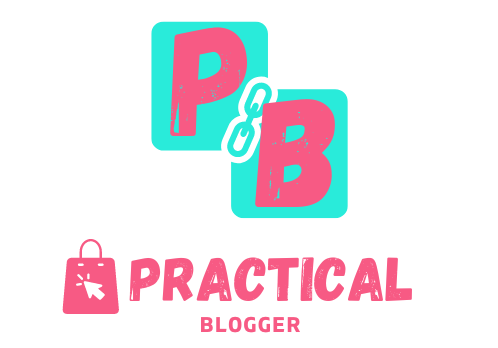Disclaimer: This post may contain affiliate links, meaning we may receive a commission at no extra cost to you if you make a purchase. See our full disclosure here: Affiliate Disclosure.
Looking to become an SEO specialist? Explore the essential skills, strategies, and career paths in this comprehensive guide. Discover the keys to SEO success!
- How to Become a SEO Specialist: Skills, Strategies, and Career Path
- SEO Specialist: Overview
- 1. Understanding SEO: The Basics
- 2. Essential Skills for an SEO Specialist
- 3. Mastering SEO Strategies
- 4. Tools of the Trade
- 5. Getting Started: Your SEO Career Path
- 6. Measuring Success: Metrics and Analytics
- 7. Staying Up-to-Date: The Ever-Changing SEO Landscape
- 8. SEO Specialist: Overview
How to Become a SEO Specialist: Skills, Strategies, and Career Path
In the ever-evolving digital landscape, SEO (Search Engine Optimization) plays a pivotal role in helping businesses succeed online. At the heart of every successful SEO campaign is an SEO specialist, the mastermind behind optimizing websites for higher search engine rankings. If you’re looking to embark on a rewarding career in the world of SEO or aiming to enhance your existing skills, this comprehensive guide will take you through the essentials of becoming a successful SEO specialist.
SEO Specialist: Overview
- Understanding SEO: The Basics
- What Is SEO?
- Why Is SEO Important?
- Essential Skills for an SEO Specialist
- Analytical Skills
- Technical Skills
- Content Creation and Optimization
- Communication Skills
- Mastering SEO Strategies
- Keyword Research
- On-Page SEO
- Off-Page SEO
- Technical SEO
- Local SEO
- Tools of the Trade
- SEO Tools
- Analytics Tools
- Content Management Systems (CMS)
- Getting Started: Your SEO Career Path
- Education and Training
- Building Your Portfolio
- Joining the SEO Community
- Measuring Success: Metrics and Analytics
- Key Performance Indicators (KPIs)
- Google Analytics
- SEO Reporting
- Staying Up-to-Date: The Ever-Changing SEO Landscape
- Blogs and Websites
- Online Courses and Certifications
- Attending SEO Conferences
- Conclusion: How to Become a Successful SEO Specialist
- Your Journey as an SEO Specialist
- The Future of SEO
1. Understanding SEO: The Basics
What Is SEO?
SEO, or Search Engine Optimization, is the practice of optimizing websites and online content to improve their visibility in search engine results pages (SERPs). The goal of SEO is to rank higher in organic (non-paid) search results, driving more organic traffic to a website. This process involves a variety of strategies and techniques that cater to search engine algorithms, which determine how web pages are ranked.
Why Is SEO Important?
SEO is crucial for several reasons:
- Increased Visibility: Ranking higher in search results means more people are likely to discover your website, products, or services.
- Organic Traffic: SEO helps generate organic traffic, reducing the reliance on paid advertising.
- Credibility and Trust: Websites that appear at the top of search results are often seen as more trustworthy and authoritative.
- Better User Experience: SEO involves optimizing the user experience, and making websites faster and more user-friendly.
- Competitive Advantage: Staying ahead in search rankings can give you a competitive edge in your industry.
2. Essential Skills for an SEO Specialist
Becoming a proficient SEO specialist requires a unique set of skills. Here are some of the key skills you’ll need:
Analytical Skills
SEO is data-driven, and SEO specialists must be adept at analyzing data to make informed decisions. You’ll need to evaluate website performance, track keyword rankings, and interpret various metrics to refine your strategies continually.
Technical Skills
Understanding the technical aspects of SEO is essential. This includes knowledge of website structure, HTML, CSS, JavaScript, and server configurations. Technical SEO ensures that search engines can crawl and index your website effectively.
Content Creation and Optimization
High-quality content is at the core of SEO. You should be skilled in creating engaging, relevant, and optimized content that resonates with your target audience while incorporating keywords strategically.
Communication Skills
As an SEO specialist, you’ll often collaborate with various teams, including content writers, developers, and marketing professionals. Effective communication is vital to convey your SEO recommendations and coordinate efforts.
3. Mastering SEO Strategies
To excel as an SEO specialist, you must master various SEO strategies. Here are some critical areas to focus on:
Keyword Research
Keyword research is the foundation of SEO. It involves identifying the search terms and phrases your target audience uses when looking for information online. Tools like Google Keyword Planner and SEMrush can help you find relevant keywords.
On-Page SEO
On-page SEO involves optimizing individual web pages to improve their search engine ranking. This includes optimizing titles, meta descriptions, and header tags, and incorporating keywords naturally within the content.
Off-Page SEO
Off-page SEO focuses on building a website’s authority and credibility through external factors. This includes link-building, social media marketing, and influencer outreach to increase backlinks to your site.
Technical SEO
Technical SEO ensures that your website is easily accessible to search engines. This includes optimizing site speed, improving mobile-friendliness, fixing broken links, and implementing structured data markup.
Local SEO
Local SEO targets local searchers and helps businesses appear in local search results. It involves optimizing Google My Business profiles, managing online reviews, and ensuring NAP (Name, Address, Phone Number) consistency across the web.
4. Tools of the Trade
To be an effective SEO specialist, you’ll need a toolbox of essential tools. Here are some categories of tools you should consider:
SEO Tools
- Google Search Console: Offers insights into how Google sees your website and provides data on search performance.
- Google Analytics: Tracks website traffic, user behavior, and conversion rates.
- SEMrush and Moz: Comprehensive SEO toolkits that offer keyword research, site audits, and competitive analysis.
- Ahrefs: A powerful backlink analysis tool to help with off-page SEO efforts.
Analytics Tools
- Google Analytics: Provides detailed insights into website traffic, user behavior, and conversion rates.
- Google Data Studio: Helps visualize and report on data from various sources, including Google Analytics.
Content Management Systems (CMS)
- WordPress: A popular CMS with many SEO-friendly plugins and themes.
- Drupal and Joomla: Other CMS options with SEO capabilities.
5. Getting Started: Your SEO Career Path
Education and Training
While many SEO specialists are self-taught, formal education can provide a solid foundation. Consider pursuing a degree or certification in digital marketing, SEO, or related fields. Online courses and SEO certifications from platforms like Coursera, Udemy, and HubSpot can also help.
Building Your Portfolio
Start building your portfolio by working on personal projects, volunteering, or interning with organizations. Showcase your skills through case studies, blog posts, or guest articles on industry websites.
Joining the SEO Community
Connect with fellow SEO enthusiasts and professionals through social media, forums, and industry events. Participate in online discussions, attend webinars, and seek mentorship from experienced SEO specialists.
6. Measuring Success: Metrics and Analytics
As an SEO specialist, you’ll need to measure the success of your efforts. Key performance indicators (KPIs) and analytics tools are your allies in this endeavor.
Key Performance Indicators (KPIs)
- Organic Traffic: Measure the volume of organic traffic your website receives.
- Keyword Rankings: Track the positions of your target keywords in search results.
- Conversion Rate: Monitor how effectively your website converts visitors into customers or leads.
- Bounce Rate: Analyze the percentage of visitors who leave your site without taking any action.
Google Analytics
Google Analytics provides valuable insights into your website’s performance. You can track user behavior, identify top-performing pages, and analyze traffic sources to make data-driven decisions.
SEO Reporting
Regularly prepare and share SEO reports with your team or clients. Tools like Google Data Studio can help you create visually appealing and informative reports.
7. Staying Up-to-Date: The Ever-Changing SEO Landscape
SEO is a dynamic field that continually evolves with updates to search engine algorithms and emerging trends. To stay competitive, it’s essential to stay informed.
Blogs and Websites
Follow reputable SEO blogs and websites like Moz, Search Engine Journal, and Search Engine Land. These platforms provide insights, news, and expert opinions on the latest SEO developments.
Online Courses and Certifications
Invest in your education by enrolling in online courses and obtaining certifications. Many platforms offer courses that cover advanced SEO topics, algorithm updates, and industry best practices.
Attending SEO Conferences
Participating in SEO conferences and industry events can help you network with professionals, gain fresh perspectives, and stay updated on industry trends. Events like MozCon and BrightonSEO are renowned in the SEO community.
8. SEO Specialist: Overview
Becoming a successful SEO specialist is a journey that requires dedication, continuous learning, and adaptability. As you navigate the ever-changing SEO landscape, remember that success in this field often relies on a combination of technical expertise, analytical skills, and effective communication.
Your journey as an SEO specialist will be marked by challenges and triumphs, but with the right skills and strategies, you can help businesses achieve their online goals and reach new heights in search engine rankings.
In conclusion, if you aspire to become an SEO specialist, commit to mastering the essentials, staying updated, and networking with peers in the industry. Your dedication will not only help you succeed but also contribute to the success of the websites and businesses you optimize.
Call-to-Action: Ready to embark on your journey as an SEO specialist? Start by building your skills and exploring the world of SEO. Whether you’re a beginner or looking to level up your expertise, the path to success in SEO begins with education and practice. Begin your journey today, and watch your career in SEO flourish!
- Related Reading: Why Start a Blog: Purpose and Benefits
- Related Reading: How Blogging Can Help You Discover Your Passion and Life Purpose
- Related Reading: How to Find Motivation to Start a Blog
- Related Reading: Identifying Personal and Professional Goals for Your Blog
You might also like:
- GoHighLevel Snapshots for Sale: A Buyer’s Guide
- How to Create Snapshots in GoHighLevel to Save Time and Streamline Your Workflow
- GoHighLevel Login Tips and Tricks: The Ultimate Guide
- How to Use GoHighLevel to Grow Your Business
- How to Become a GoHighLevel Top Affiliate and Earn Passive Income
- GoHighLevel Pricing Plans: A Comprehensive Guide
- GoHighLevel Support: Get Help 24/7







